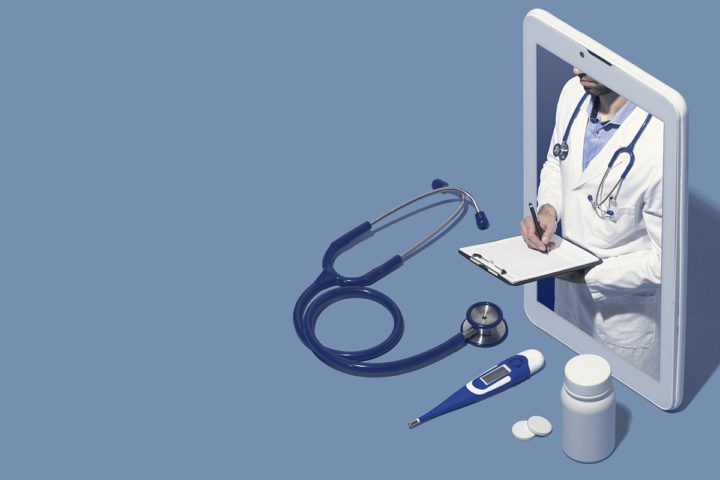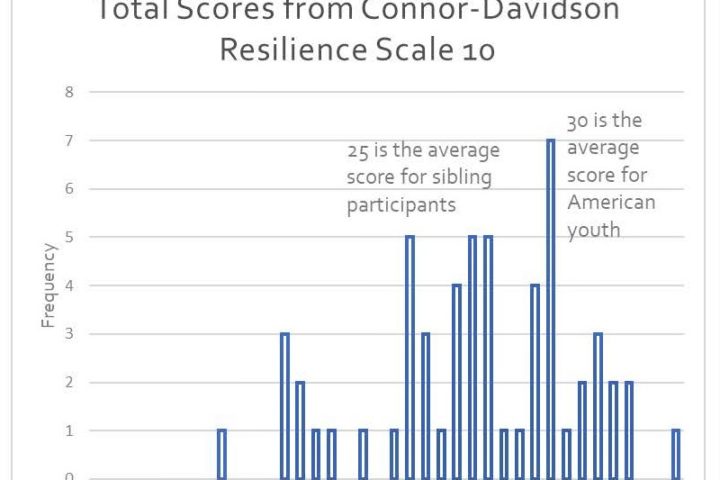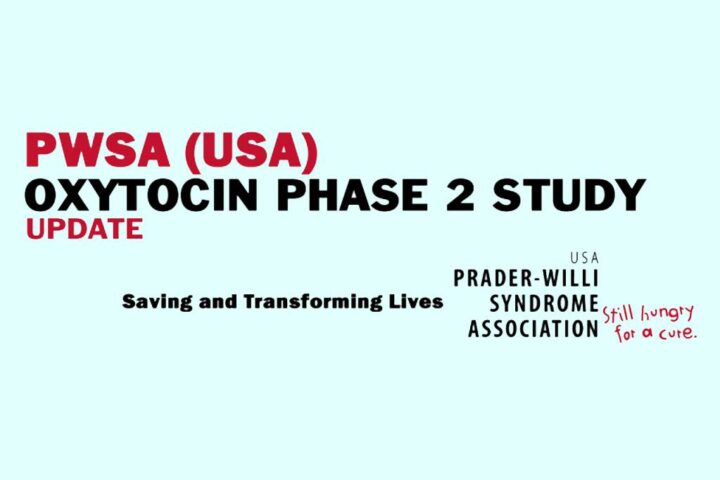Respiratory illness in persons with Prader-Willi syndrome (PWS) can be extraordinarily complicated and the course of the illness is often more serious than it is for others. Pronounced hypotonia in PWS is a significant risk factor for respiratory illness with severe complications. In a recently released study by Dr.’s Miller and Thornton, parents of children...
Category: Research
September Is Newborn Screening Awareness Month
What is newborn screening? Newborn screening is one of the most successful public health programs ever enacted, saving thousands of lives over the past 50 years. Newborn screening allows physicians to catch rare genetic conditions at birth and start treatment almost immediately following birth; it enables efficient diagnosis and access to treatments that can save...
Prader-Willi Syndrome Association | USA and the Foundation for Prader-Willi Research Partner for Telehealth Needs Assessment
Prader-Willi Syndrome Association | USA (PWSA | USA) and the Foundation for Prader-Willi Research (FPWR) have partnered to conduct a study to measure interest in telehealth as a way of increasing access to care from Prader-Willi syndrome specialists. In addition, the project aims to better understand the demographic makeup of the Prader-Willi syndrome (PWS) parent...
Prader-Willi Syndrome and Gastroparesis
There is little evidence in the literature regarding the incidence of gastroparesis in PWS and how it affects families in the PWS community. Within the Global PWS Registry, 13% of participants have been diagnosed with gastroparesis (N=739). Of those with gastroparesis, more than half were diagnosed under age 10. The severity of gastroparesis reported ranges...
Levo Therapeutics Announces Top-line Results from Phase 3 CARE-PWS Study of LV-101 (Intranasal Carbetocin) for the Treatment of Prader-Willi Syndrome
CHICAGO–(BUSINESS WIRE)–Levo Therapeutics, Inc., a biotechnology company dedicated to using genetic insights to advance treatments for Prader-Willi syndrome (PWS) and related disorders, announced today top-line results from the Phase 3 CARE-PWS clinical study evaluating LV-101 (intranasal carbetocin) for the treatment of PWS. This syndrome is a complex, neurodevelopmental disorder that occurs in approximately 1 in...
Update on Later Stage Clinical Trials for Prader-Willi Syndrome Hyperphagia
Approximately two years ago, several companies began clinical trials of drugs with the potential to treat hyperphagia and associated behaviors in Prader Willi syndrome (PWS). Outcomes of four of five trials are now available. Soleno Therapeutics recently announced the results of clinical trials of DCCR. In the double-blind study, caregivers were asked to rate the...
Surviving Quarantine as a Sibling
Siblings of individuals with Prader-Willi syndrome (PWS) are at an increased risk of developing emotional and mental health problems. According to the 2019 study on PWS sibling well-being, participants showed incredibly high rates of distress and lower than average resilience (Murphy, Thornton & Thornton, 2019.) The outbreak of COVID-19 and subsequent quarantine may make the...
Visceral Adipose Tissue Resides Within the Reference Range in Children with Prader-Willi syndrome Receiving Nutritional Intervention on a Regular Basis
In a recently published study from Japan, 20 children with Prader-Willi syndrome (PWS) were retrospectively evaluated for the effect of nutritional intervention (caloric restriction) and growth hormone (GH) treatment on visceral adipose tissue (VAT). VAT has been shown to be a marker for risk of metabolic complications and is believed to be a better marker...
Update: Oxytocin Phase 2 Trial
It has been nearly one year since we learned of the initial potential of oxytocin and PWSA (USA) began raising funds for the phase 2 clinical trial. This trial will provide us a greater understanding of the potential benefits, appropriate dosage needed, and additional vital information. The phase 1 study results were very positive and...








 Jennifer Bolander has been serving as a Special Education Specialist for PWSA (USA) since October of 2015. She is a graduate of John Carroll University and lives in Ohio with her husband Brad and daughters Kate (17), and Sophia (13) who was born with PWS.
Jennifer Bolander has been serving as a Special Education Specialist for PWSA (USA) since October of 2015. She is a graduate of John Carroll University and lives in Ohio with her husband Brad and daughters Kate (17), and Sophia (13) who was born with PWS. Perry A. Zirkel has written more than 1,500 publications on various aspects of school law, with an emphasis on legal issues in special education. He writes a regular column for NAESP’s Principal magazine and NASP’s Communiqué newsletter, and he did so previously for Phi Delta Kappan and Teaching Exceptional Children.
Perry A. Zirkel has written more than 1,500 publications on various aspects of school law, with an emphasis on legal issues in special education. He writes a regular column for NAESP’s Principal magazine and NASP’s Communiqué newsletter, and he did so previously for Phi Delta Kappan and Teaching Exceptional Children. Evan has worked with the Prader-Willi Syndrome Association (USA) since 2007 primarily as a Crisis Intervention and Family Support Counselor. Evans works with parents and schools to foster strong collaborative relationships and appropriate educational environments for students with PWS.
Evan has worked with the Prader-Willi Syndrome Association (USA) since 2007 primarily as a Crisis Intervention and Family Support Counselor. Evans works with parents and schools to foster strong collaborative relationships and appropriate educational environments for students with PWS. Dr. Amy McTighe is the PWS Program Manager and Inpatient Teacher at the Center for Prader-Willi Syndrome at the Children’s Institute of Pittsburgh. She graduated from Duquesne University receiving her Bachelor’s and Master’s degree in Education with a focus on elementary education, special education, and language arts.
Dr. Amy McTighe is the PWS Program Manager and Inpatient Teacher at the Center for Prader-Willi Syndrome at the Children’s Institute of Pittsburgh. She graduated from Duquesne University receiving her Bachelor’s and Master’s degree in Education with a focus on elementary education, special education, and language arts. Staci Zimmerman works for Prader-Willi Syndrome Association of Colorado as an Individualized Education Program (IEP) consultant. Staci collaborates with the PWS multi-disciplinary clinic at the Children’s Hospital in Denver supporting families and school districts around the United States with their child’s Individual Educational Plan.
Staci Zimmerman works for Prader-Willi Syndrome Association of Colorado as an Individualized Education Program (IEP) consultant. Staci collaborates with the PWS multi-disciplinary clinic at the Children’s Hospital in Denver supporting families and school districts around the United States with their child’s Individual Educational Plan. Founded in 2001, SDLC is a non-profit legal services organization dedicated to protecting and advancing the legal rights of people with disabilities throughout the South. It partners with the Southern Poverty Law Center, Protection and Advocacy (P&A) programs, Legal Services Corporations (LSC) and disability organizations on major, systemic disability rights issues involving the Individuals with Disabilities Education Act (IDEA), Americans with Disabilities Act (ADA), and the federal Medicaid Act. Recently in November 2014, Jim retired.
Founded in 2001, SDLC is a non-profit legal services organization dedicated to protecting and advancing the legal rights of people with disabilities throughout the South. It partners with the Southern Poverty Law Center, Protection and Advocacy (P&A) programs, Legal Services Corporations (LSC) and disability organizations on major, systemic disability rights issues involving the Individuals with Disabilities Education Act (IDEA), Americans with Disabilities Act (ADA), and the federal Medicaid Act. Recently in November 2014, Jim retired.